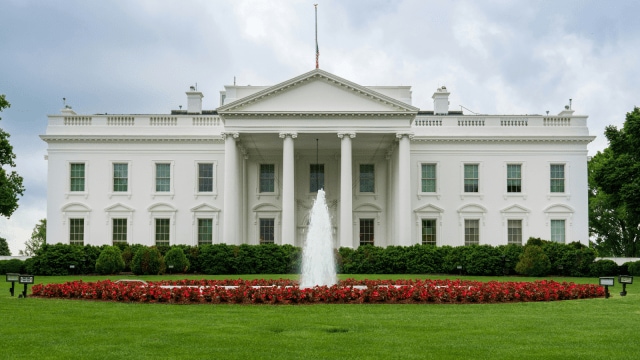As part of its campaign of maximum economic pressure on Iran, the US has sanctioned nine India-based companies and eight Indian nationals as part of its latest Iran-related sanctions action, alleging that they have been engaged in trade of Iranian oil, petroleum products, and petrochemicals.
In the latest action, announced Thursday, the US Department of State imposed sanctions on nearly 40 individuals, entities, and vessels over their involvement in the trade of Iranian petroleum and petrochemical products. Simultaneously, the US Department of the Treasury’s Office of Foreign Assets Control (OFAC) designated 60 individuals, entities, and vessels for their roles in facilitating the shipment of oil and liquefied petroleum gas (LPG) from Iran to overseas end users. Various entities from some other countries have also been sanctioned, including China and the United Arab Emirates.

Eight Indian chemical and petrochemical trading companies are part of the US state department sanctions lists. These include Mumbai-based firms CJ Shah & Co, Chemovick, Mody Chem, Paarichem Resources, Indisol Marketing, Haresh Petrochem, and Shiv Texchem, and Delhi-based BK Sales Corporation. According to the State Department, these companies cumulatively imported Iranian-origin petrochemicals—which are under US sanctions—worth hundreds of millions of dollars over the past couple of years.
The state department list also includes five Indian nationals—Chemovick’s director Piyush Maganlal Javiya, Indisol Marketing director Niti Unmesh Bhatt, and Haresh Petrochem directors Kamla Kasat, Kunal Kasat, and Poonam Kasat.
Three Indian nationals—Varun Pula, Iyappan Raja, and Soniya Shrestha—feature in the OFAC’s designations over their alleged association with vessels engaged in transportation of Iranian LPG. Mumbai-based shipping firm Vega Star Ship Management, which OFAC says is owned by Soniya Shrestha, has also been designated by the OFAC as a vessel—Comoros-flagged Nepta—owned by the company transported Iranian-origin LPG to Pakistan.
According to the OFAC, Pula owns Marshall Islands-based Bertha Shipping, which is the owner operator, and ship manager of the Comoros-flagged vessel Pamir. Since July 2024, Pamir has transported nearly four million barrels of Iranian LPG to China, the OFAC said. Raja has been identified as the owner of Marshall Islands-based Evie Lines, which owns the Panama-flagged vessel Sapphire Gas. According to the OFAC, this vessel has transported over a million barrels of Iranian LPG to China since April this year. The vessels in question have also been blocked by the US.
“As a result of today’s action, all property and interests in property of the designated or blocked persons described above that are in the United States or in the possession or control of US persons are blocked and must be reported to OFAC. In addition, any entities that are owned, directly or indirectly, individually or in the aggregate, 50 per cent or more by one or more blocked persons are also blocked,” OFAC said in its statement.
Story continues below this ad
Commenting on the action by the OFAC, US Treasury Secretary Scott Bessent said, “The Treasury Department is degrading Iran’s cash flow by dismantling key elements of Iran’s energy export machine. Under President Trump, this administration is disrupting the regime’s ability to fund terrorist groups that threaten the United States.”
According to the OFAC, this action targets a network moving hundreds of millions of dollars’ worth of Iranian LPG, along with nearly two dozen shadow fleet vessels, a China-based crude oil terminal, and a Chinese refinery, which are “key to Iran’s ability to export petroleum and petroleum products to generate significant revenue”.
“The Iranian regime continues to fuel conflict in the Middle East and fund its destabilizing activities. This behavior enables Iran’s ability to fund its nuclear program, support terrorist groups, and disrupt trade and freedom of navigation in waterways crucial to global prosperity and economic growth. The United States will continue to take action against the network of terminal operators, port agents, shippers, brokers, and service providers involved in the trade of Iranian crude oil, petroleum products, and petrochemical products,” the US state department said.
“Iran’s petrochemical industry and exports are a critical sector of the Iranian economy that has grown in recent years to generate billions of dollars in illicit funds for Iran’s destabilizing activities. Like the regime’s illicit oil exports, Iranian petrochemical products are frequently transshipped through intermediaries in third countries to obfuscate their origin. Today’s action targets those intermediaries, as well as the buyers of Iranian petrochemical products,” it added.
Story continues below this ad
The latest action by Washington is part of the Donald Trump administration’s “maximum pressure campaign” on Iran, which has now seen multiple rounds of sanctions against individuals and firms over the past few months. Indian nationals and firms have featured on the list of sanctioned individuals and entities in earlier rounds as well. For instance, eight India-based companies and five Indian nationals were sanctioned by the US late July as part of Washington’s action against entities engaged in trade of Iranian oil, petroleum products, and petrochemicals, and those identified as part of a shipping empire controlled by Mohammad Hossein Shamkhani—the son of Ali Shamkhani, a top political advisor to the Supreme Leader of Iran.
Even prior to Trump’s administration’s campaign against Iran’s oil and petroleum products trade, a few Indian companies had been placed under sanctions by the previous US administration for involvement in energy transportation and trade through the so-called shadow fleet of tankers. For instance, in October, India-based Gabbaro Ship Services was sanctioned for alleged involvement in transportation of Iranian oil. In August and September of last year, three India-registered shipping firms were sanctioned by the US over their alleged involvement in transporting liquefied natural gas (LNG) from Russia’s Arctic LNG 2 project, which is under American sanctions.
Most of the Indian companies that have been sanctioned by the US over purported violations of energy sector-related sanctions appear to be small and hitherto little-known entities set up in recent years, and not large enterprises. While major Indian companies steer clear of Iranian energy trade, as Tehran’s oil and gas sector is under sanctions imposed by Washington, the action by Washington in recent months suggests that a few small Indian firms have been engaged in such trades.

































